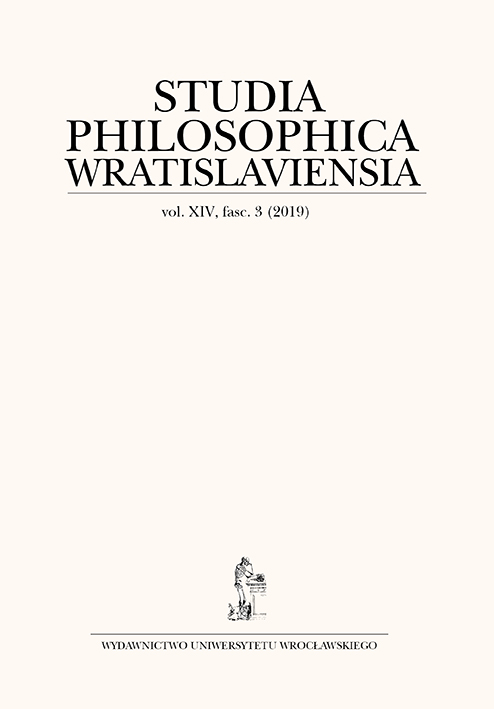

ARTYKUŁY

Hermann Cohen and the Other: The Triumph and Fall of “Pure Reason”
The article poses the question of the contemporary validity and meaning of Hermann Cohen’s philosophical thought. It is argued that in order to understand its phenomenon one has to go beyond the epistemological and methodological perspectives in which Cohen’s work has usually been analyzed and probe into the philosopher’s deepest spiritual and intellectual formation — that of Judaism. The author claims that Cohen, otherwise a celebrated academic scholar, was first of all a rabbi, i.e. a teacher in the Judaist tradition. This is the context in which we can weigh his friendship with young Franz Rosenzweig — it was Rosenzweig who first recognized the revolutionary significance of Cohen’s philosophy of religion and utilized the latter in his seminal work The Star of Redemption Der Stern der Erlosung where he emphasized the late stage of Cohen’s intellectual evolution, especially the one associated with Religion der Vernunft aus den Quellen des Judentums 1919. This book is viewed as essentially a reinterpretation of Kant’s moral theory and philosophy of religion in terms of Judaism and the Bible, which in itself marks Cohen’s departure from critical idealism and his shift towards the dialogic philosophy. In this context one can see Cohen as a teacher of the German nation, someone who could accurately examine the dangers of the Romantic theory of the nation as well as the Romantic especially Fichtean version of Kant’s moral theory, dangers corroborated by 20th-century history. While stressing Cohen’s positive contribution to our understanding of the contemporary world, it should be added that the philosopher’s belief in the liberating potential of “pure reason” was heavily damaged in the face of the totalitarian ideas in modern Europe. It does not mean, however, that his thought has lost its potency. On the contrary, in the age of the crisis of rationality Cohen’s work may be seen as a vital testament. Its effectiveness, though, lies not in the power of “pure reason” but in the power of dialogue and the imperative to love one’s neighbor, a rational and free act which surpasses all religious and speculative constraints. Accordingly, the article concludes by pointing to the timeliness and validity of Cohen’s spiritual and intellectual legacy.